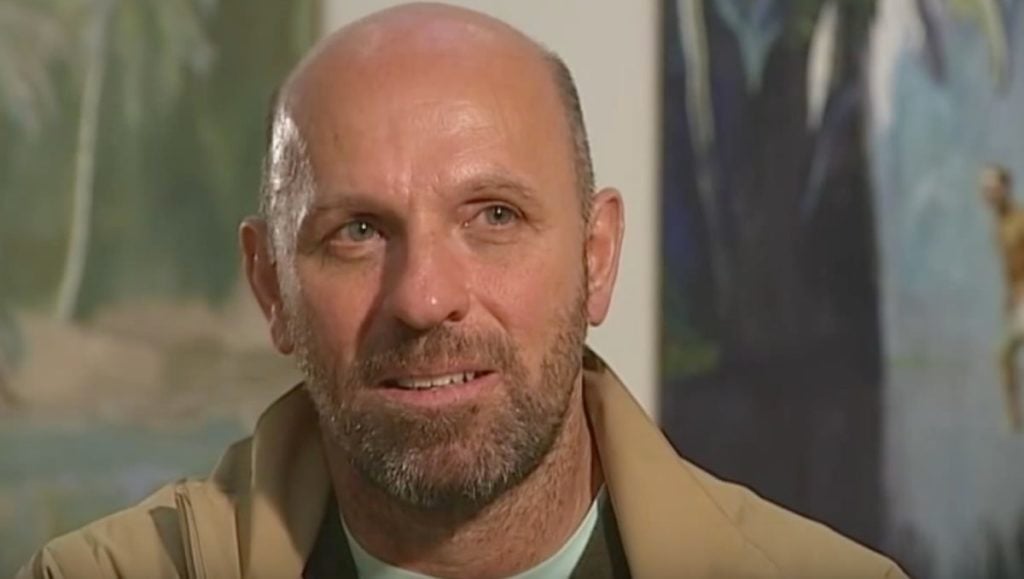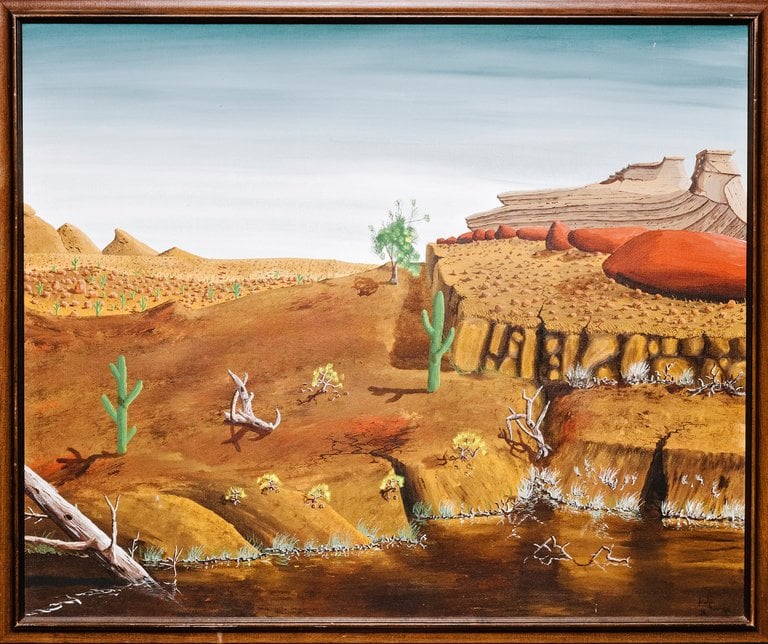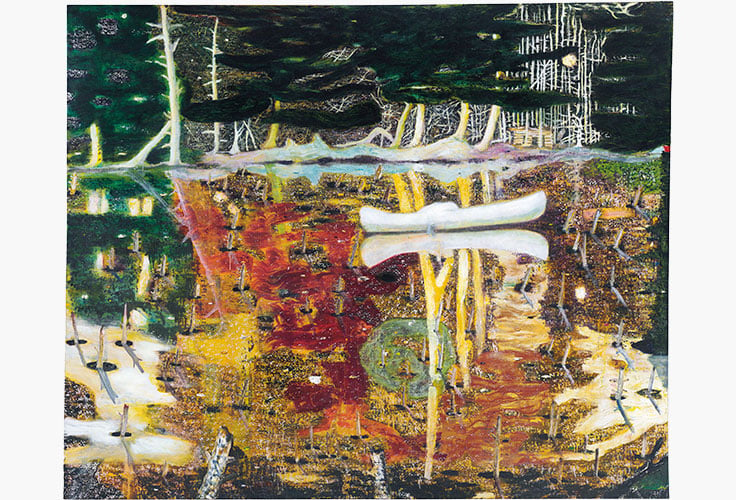Law & Politics
Artist Peter Doig Says Plaintiffs Threaten to Reveal His Secret ‘Criminal Past’
The trial begins Monday.

The trial begins Monday.

Henri Neuendorf

Scottish artist Peter Doig says he was threatened by one of the claimants in a bitter legal battle, which will play out in Chicago court on Monday.
In an interview with the German daily Die Zeit, the artist said, “I have never been pursued so aggressively to authenticate a work that is not mine. I was even threatened that friends in Homeland Security would uncover my ‘criminal past’ in order to instigate a travel ban to the United States. I have no criminal past! This is crazy.”
The case relates to a desert landscape owned by a 62-year-old Canadian former corrections officer purportedly painted by Doig while serving time as a young inmate at the Thunder Bay Correctional Center in Northwestern Ontario. Robert Fletcher said he bought the work for $100 in 1975 from a man named Peter Doige (spelled with an ‘e’).

The painting in question depicts a desert landscape. Photo: ARIS Title @ARIS_ArgoGroup via Twitter.
Fletcher and the Chicago art dealer Peter Bartlow, to whom Fletcher consigned the work, are seeking $5 million in damages after Doig refused to acknowledge that he painted the artwork.
According to Cook County Record, the claimants contend in the suit that Doig intentionally blocked the sale, which “would have brought future economic advantage to the plaintiffs in a sum exceeding $1 million and up to $12 million.” Despite the evidence, a Chicago federal judge said the evidence produced by Doig’s legal team is “not strong enough,” and the trial is set to begin on Monday in United States District Court for Northern Illinois.

Peter Doig’s Swamped (1990). Photo: Christie’s.
“Had I painted the picture I would have authenticated it,” Doig insisted to the German publication. “I would not be ashamed and I would have nothing to lose. But the truth is the painting is not mine! It’s unbelievable that I’m being forced to invest a great deal of time and resources into this rebuttal.”
The artist added that the case could set a “dangerous precedent.” He explained, “The final authority for authentication of a work of art would no longer be the surviving artist himself, but a judge or jurors who are at best nominally familiar with the classification of works of art or artistic practice. Each artist will have to live with the fear that he may have to invest large amounts of money and time in order to defend himself against opportunistic sharks that are ready to manipulate the US justice system for profit.”
When asked for comment, Bartlow told artnet News in a phone conversation that Doig’s legal team has “produced nothing of substance” since they first filed the suit in 2013. He continued, “After all is said and done, we’d like to be awarded damages of at least $7 million and we want the painting declared a genuine Peter Doig painting. We have a very fair and smart judge.”